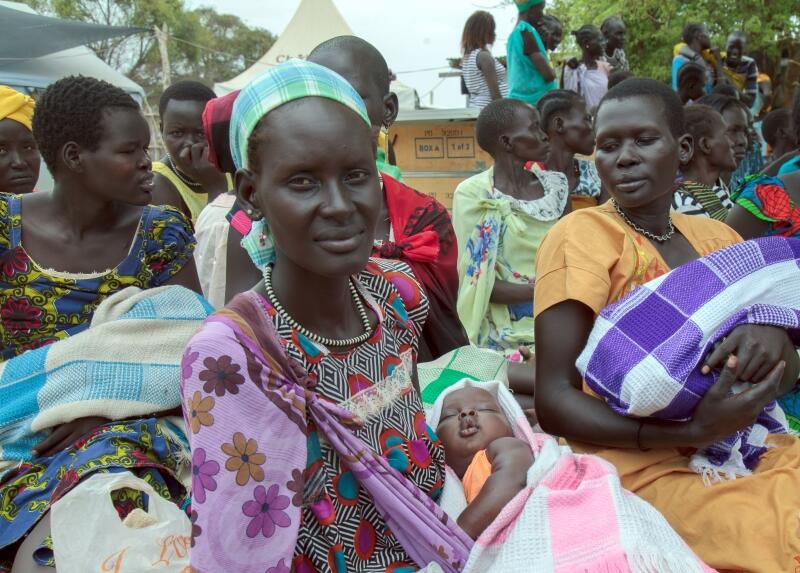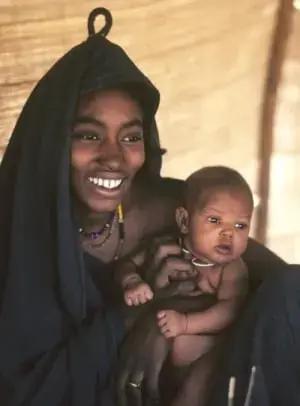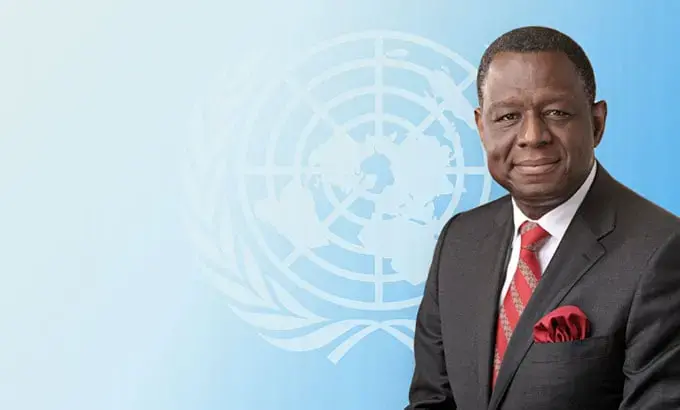16 March 2017, Mingkaman, Awerial South, South Sudan – The Government of Japan and UNFPA, the United Nations Population Fund, donated a solar-powered electrical system to the people of Awerial to provide electricity to the reproductive health clinic serving people displaced by the conflict in the region.
The 12 solar panels donated to the clinic managed by IMA World Health will ensure continuous supply of electricity to the only reproductive health facility in the county. With about 120,000 internally-displaced persons (IDPs) hosted in the county on top of a 60,000-strong population, the needs for reproductive health services are overwhelming. As many as seven babies may be born at the clinic on any given day.
Japanese Ambassador to South Sudan, Kiya Masahiko, and UNFPA Country Representative, Esperance Fundira, handed over the solar-powered system to local officials and health workers in the reproductive health clinic, in the presence of the Health Under-Secretary, Makur Kariom, and Awerial South County Commissioner, Dut Malual.
During his visit to Mingkaman, the Japanese Ambassador announced his government’s further commitment of $500,000 in 2017-2018 to continue delivering life-saving reproductive health services to crisis-affected women and girls through UNFPA.
The new funding covers antenatal and postnatal care, roll-out of model Maternal and Child Health Cards, safe deliveries, post-abortion care, family planning and management of gender-based violence. The programme will target conflict-displaced women and girls in Mingkaman and in the Protection of Civilians (PoC) sites in Malakal and Juba.
“The humanitarian calamity in South Sudan has reached an unprecedented level and directly affects the health of mothers and babies. Paradoxically, encouraged by how Mingkaman people build their future by utilizing our contribution, we wish to make investments for future generations by preparing an environment where new-born babies are compromised upon birth,” Ambassador Masahiko said.
Since 2014, the Government of Japan, through UNFPA, has allocated $6.6 million to support the provision of emergency obstetric and neonatal care services, emergency reproductive health kits, essential medical equipment and medicines. The funding has also supported skills training for health service providers.
Ms. Fundira expressed appreciation to the Government of Japan for focusing its humanitarian support on the special needs of women and girls, which are often neglected.
“UNFPA recognizes the important contribution of the Government of Japan to the well-being of the women and girls of South Sudan through life-saving services for reproductive health and management of gender-based violence,” Ms. Fundira said.
South Sudan remains one of the most protracted crises in the world, with 7.5 million people in need of humanitarian assistance. It has one of the world’s highest maternal mortality ratios of 2,054 deaths per 100,000 live births. The conflict situation has exposed women and girls to increased risk of gender-based violence.
For more information, please contact the following:
Arlene Alano, UNFPA South Sudan, at +211 954 003 844 or via alano@unfpa.org;
Koji Ito, Economic Affairs and Development Cooperation, Embassy of Japan in South Sudan, at +211 956 481 145 or via koji.ito-2@mofa.go.jp





